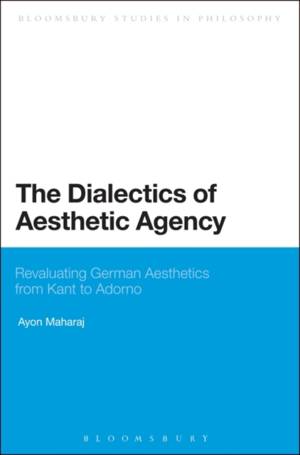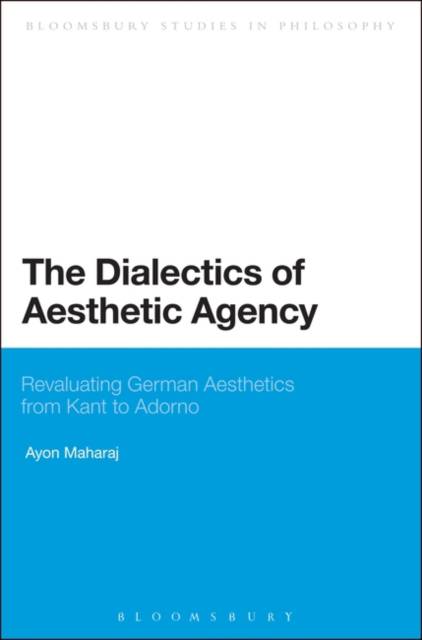
- Retrait gratuit dans votre magasin Club
- 7.000.000 titres dans notre catalogue
- Payer en toute sécurité
- Toujours un magasin près de chez vous
- Retrait gratuit dans votre magasin Club
- 7.000.0000 titres dans notre catalogue
- Payer en toute sécurité
- Toujours un magasin près de chez vous
Description
This study examines how key figures in the German aesthetic tradition -- Kant, Schelling, Friedrich Schlegel, Hegel, and Adorno -- attempted to think through the powers and limits of art in post-Enlightenment modernity. Ayon Maharaj argues that the aesthetic speculations of these thinkers provide the conceptual resources for a timely dialectical defense of "aesthetic agency"-- art's capacity to make available uniquely valuable modes of experience that escape the purview of Enlightenment scientific rationality.
Blending careful philosophical analysis with an intellectual historian's attention to the broader cultural resonance of philosophical arguments, Maharaj has two interrelated aims. He provides challenging new interpretations of the aesthetic philosophies of Kant, Schelling, Schlegel, Hegel, and Adorno by focusing on aspects of their thought that have been neglected or misunderstood in Anglo-American and German scholarship. He demonstrates that their subtle investigations into the nature and scope of aesthetic agency have far-reaching implications for contemporary discourse on the arts. The Dialectics of Aesthetic Agency is an important and original contribution to scholarship on the German aesthetic tradition and to the broader field of aesthetics.
Spécifications
Parties prenantes
- Auteur(s) :
- Editeur:
Contenu
- Nombre de pages :
- 208
- Langue:
- Anglais
- Collection :
Caractéristiques
- EAN:
- 9781472579591
- Date de parution :
- 17-07-14
- Format:
- Livre broché
- Format numérique:
- Trade paperback (VS)
- Dimensions :
- 156 mm x 234 mm
- Poids :
- 326 g

Les avis
Nous publions uniquement les avis qui respectent les conditions requises. Consultez nos conditions pour les avis.






